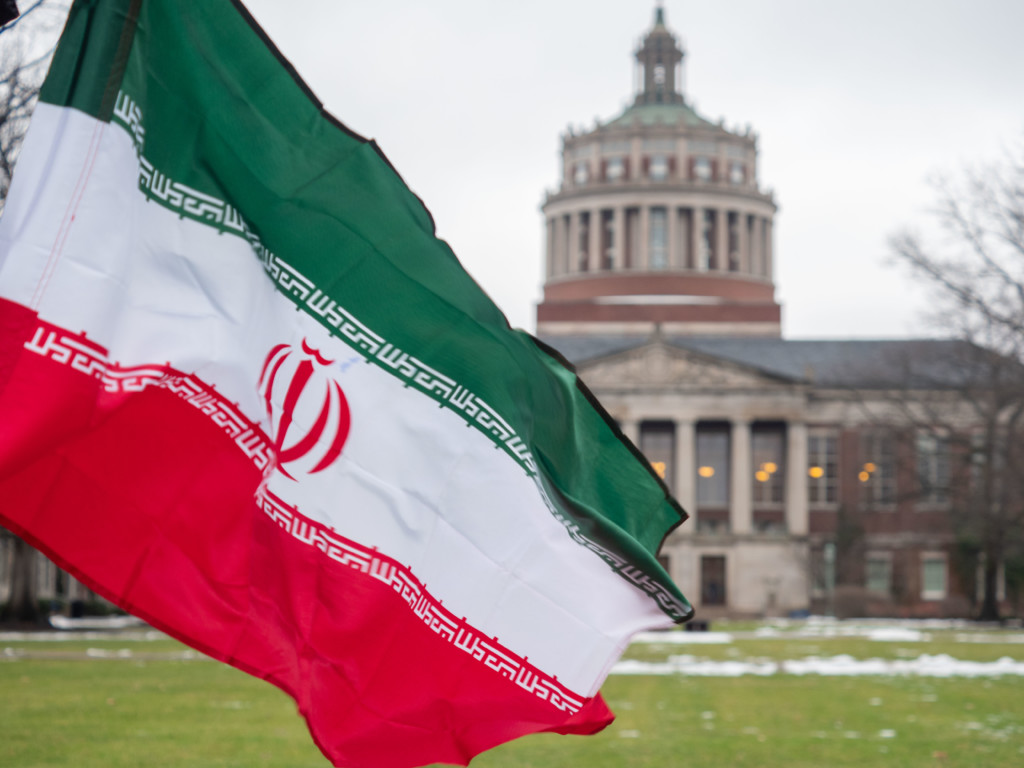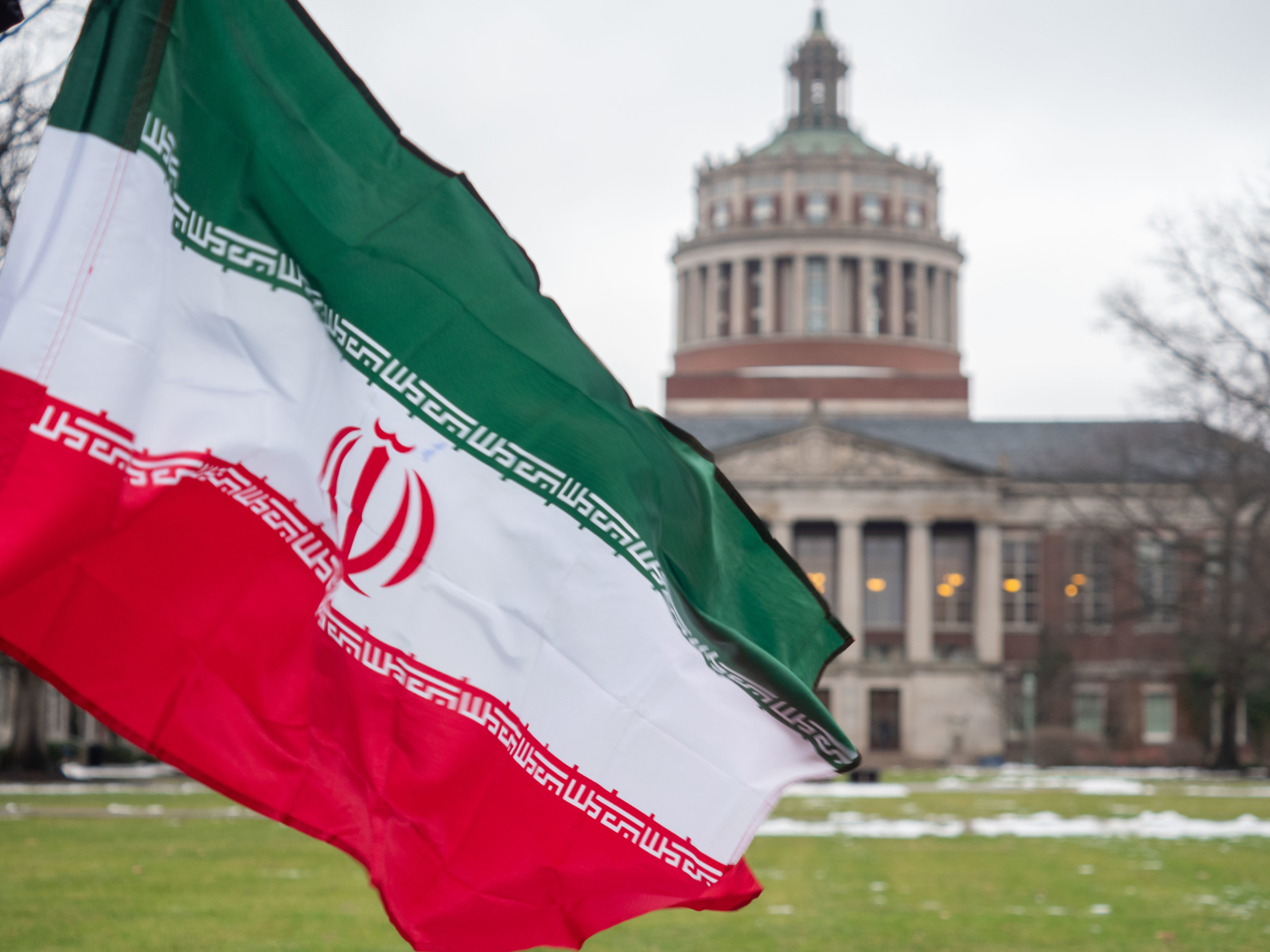Editor’s Note (1/26/2020): There are 27 Iranian students on campus. The three Iranian students interviewed for this story were granted anonymity to protect against retaliation. They are referred to as first, second, and third student.
On Jan. 8, the first Iranian UR student who spoke to the Campus Times opened tab after tab of news sites and President Donald Trump’s Twitter, waiting for Western news outlets to pick up the story of Iran’s retaliatory missile attacks that Iranian media had been reporting for about a half-hour.
He phoned his cousin, who lives in Erbil, Iraq — the place that had just been hit. 20 calls, no response. He called his parents in Iran and told them: “Grab your suitcases, whatever you can. There will be a war.”
For Americans, the U.S.-Iran military escalation this January ignited fear and an influx of memes to cope with the possibility of World War 3. But two of the Iranian students interviewed for this story said they can hardly remember a time when they and their families didn’t fear war.
The second student said her parents also packed their bags that night, just as they had done 40 years ago to flee the Iran-Iraq war which razed her father’s home to the ground. She recalled how her hands shook as she read news of the airstrike on her phone. “All of this fear that I’ve had for 10 years or more,” she remembered thinking, “all of the nightmare is happening tonight.”
As hellish as it’s been this January, three students told the Campus Times that being Iranian in America has never been easy.. They said they’ve grown accustomed to operating by a different set of rules in many contexts — when applying for jobs, visas, credit cards.
“Being an Iranian has a lot of consequences and disadvantages,” said the first student. “I had my bank account closed five times without giving me notice.”
Chase, the bank most accessible to UR students, does not allow Iranians to open accounts. Some companies refuse to hire Iranians. Students said they are rarely given multiple-entry visas, even as students, making it nearly impossible to leave the U.S. to visit family until they finish their degree program.
Since the killing of Qassim Suleimani, Iranians and Iranian-Americans have been detained for hours upon re-entry to America. The killing has had other effects on the students, who said they felt reluctant to share their nationality or speak to the current tensions for fear of being stigmatized.
This burden is why some Iranian citizens disapprove of their government and its efforts to antagonize the U.S., said the third student. But while a sizeable amount of the population is unhappy with the current regime, students said Suleimani’s death had halted civil unrest.
“When they assassinated Suleimani, it was as if the whole country was reunited,” said the first student. “The U.S. managed to do what the regime could not do in 40 years.”
The third student said Suleimani was perceived as a “decent man” whose actions helped secure Iran’s interests abroad.
“I’m not a fan of him, but he was the second most important person in Iran,” the first student said. “I have a very big problem with how he got assassinated.”
Students spoke not only about the political significance of recent events, but the suffering those events brought upon ordinary people. Two spoke with audible pain about the passengers on Ukraine International Airlines Flight 752, which was misidentified as a missile and shot down hours after Iran’s missile attack.
“All of them had lives that mattered,” said the first student. “Because of this show of power, 176 people died by accident.”
The second student described trying to keep up her daily routine, despite her sadness. “I was listening to the news [about the Ukrainian airliner] and I cried at my office,” she said.
The first student said the mortal consequences of the war scare seemed to garner little attention in the U.S., perhaps because they did not directly impact most Americans.
“U.S. has been in war with God-knows-how-many countries. But the people in U.S. don’t have a picture of it because it was just far away from their home.”
Despite Trump’s upbeat tweets after the air strike, his speech after Iran’s airstrike doubled down on the U.S.’s hardliner position towards Iran, as did his decision to sanction more Iranian industries.
The sanctions, the first of which were reinstated in 2018 when the U.S. left the nuclear deal, have plunged Iran into a deep recession. Once again, the people who feel this clampdown most strongly are Iranian citizens.
The second student said she often sends her parents over-the-counter drugs like aspirin and vitamins, which have become scarce in Iran thanks to the sanctions. Cancer patients no longer have access to chemotherapy treatments. Her brother in Iran, who is protesting against the airline bombing, is struggling to start a life and buy a house.
Though the memes have faded, the students said they are not at ease just yet. It remains to be seen how the news that 34 U.S. soldiers suffered traumatic brain injury from the strike may affect relations in the future.
“As long as our governments are not in a good relationship,” said the second student, “we will always have this fear of war.”


